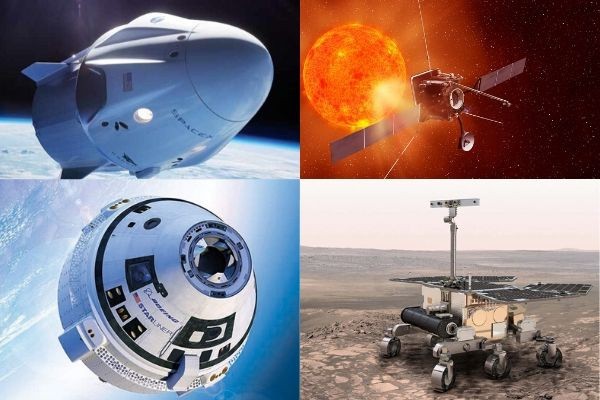
"Space the final frontier, these are the voyages of the USS Enterprise...."
This is a quote from the show "Star Trek", more than one generation of astrophysicists, astronauts have this as an inspiration. Since the first moon landing, to the flights of the gigantic Saturn boosters, to the reusable and multi-mission space shuttle, and to the international space station that is moored in earth's orbit. Essentially, since the first star was seen by the first man, and till now humans are destined to reach the stars.
Space has always drawn the stare of men skywards and the cosmos is the new frontier that beckons. In 2020, another set of missions to space are going online and going to the heavens as space scientists and engineers are sending more envoys to the earth's outer limits and beyond. Using varieties of technologies that will power the bid to industrialize space or weaponize it. Is this the new renaissance of space travel or just a footnote to a small step? Let us find out.
1. Human Space-faring is at its infancy.
Commercialization of space has always been the objective of corporations, in 2020 there will be crewed spacecraft which are made by private tech firms. Before this, most spacecraft was government-sponsored and most missions by NASA. Now, with the private sector as new players in the space game, there will be more so expect big changes in the works. Two commercial spacecraft are set to visit the International Space Station (ISS), one is the SpaceX's Dragon 2 and Boeing's CST-100 Starliner spacecraft. Both are manned by private crews not government issue specialists.
2. Asteroids might hold exo-lifeforms.
A mechanical visitor to another world is coming back to its creators. The Hayabusa 2 flown in 2014 that made contact with asteroid 162173 Ryugu, is having a homecoming and it has a gift. It collected samples from the asteroid as it shot a pellet to draw in asteroid dust, low gravity made it easy to do. The space vehicle did a grab and go, and went back to earth.
3. Mars is magnetized?
China is set to send a Mars rover in 2020, that will collect samples and attempt to use ground radar to investigate the surface of Mars. The rover will probe climatic and magnetic conditions on the red planet, and return to earth afterward. It is a major move by China to get into the space quest this year.
ESA Rosalind Franklin Rover, will launch in July this year and be the first-ever mission of its kind, by the European Space Agency. A drilling operation to get samples that will be used to study the red planet further too, and set to return after the mission.
4. Probing the sun in the solar system.
The sun will be under watch by the Solar Orbiter, which will be farther than the Parker Solar Probe in terms of distance. It will be orbiting Mercury's orbit, while its probes are trained on the sun. It will be one of the most durable spacecraft in human history as it resists the melting heat of Mercury.
Related Article: Space milestones: here are the missions to look forward to in 2020
© 2025 ScienceTimes.com All rights reserved. Do not reproduce without permission. The window to the world of Science Times.











